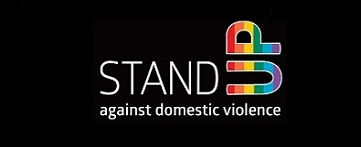
LGBTI community encouraged to confront domestic violence

TOO few people notice the warning signs of domestic violence from friends and family members, say backers of a new campaign aimed at the LGBTI community.
The initiative, Stand Up Against Domestic Violence, aims to break down the barriers that prevent LGBTI people from talking to those close to them who might be in an abusive relationship.
Health promotion body ACON has produced the campaign which has also found support from the NSW Police, Sydney Council and the federal Department of Social Services.
ACON chief executive Nicolas Parkhill said the initiative would inform, support and empower LGBTI people to act when they see the signs of domestic abuse among friends.
“Many LGBTI people are unsure of what [domestic violence] looks like in our communities, are unsure what to do or feel afraid to do or say something when they see the signs,” he said.
“This campaign will help LGBTI people to recognise that we all have a role to play when we witness the signs of an unhealthy relationship among our friends and in our community.”
Domestic abuse can include physical violence or more subtle forms of abuse such as insults or having financial control over a person’s finances.
Researchers from LaTrobe University found a third of LGBTI people had experienced domestic violence, a figure similar to levels in the straight community.
However, LGBTI people were less likely to identify themselves as being in an abusive relationship, seek support or find appropriate services that meet their needs.
Meanwhile, as many as 13 per cent of LGBTI people experiencing domestic violence or abuse will stay in that relationship for six years or more.
“There is significant under-reporting of [domestic violence] incidents within the LGBTI community,” said NSW Police’s spokesperson on LGBTI issues, Superintendent Tony Crandell.
“We know that it is happening, however, people assume that what’s happening to them isn’t a crime or perhaps they are too scared to come forward because they are being controlled or intimidated.”
The campaign urges friends and families to take on the role of active bystanders by noticing possible warning signs of abuse and then approaching the person involved with their concerns at a time when the potential abuser is not present.
LGBTIQ Domestic Violence Interagency chair Pip Ditzell endorsed the campaign: “We need to make it easier for people to speak-up and report violence, and also ensure that the LGBTI community know where they can access resources and support.”
The Stand Up Against Domestic Violence campaign includes a range of online resources with posters displayed on Sydney bus shelters.
The campaign can be viewed at www.anothercloset.com.au/stand-up.









